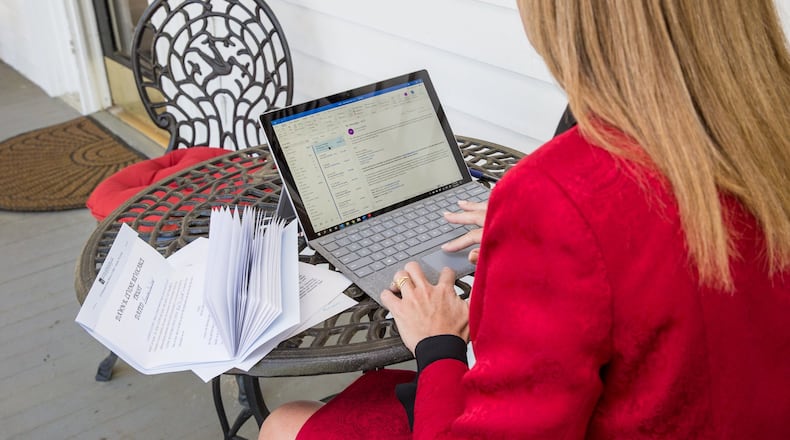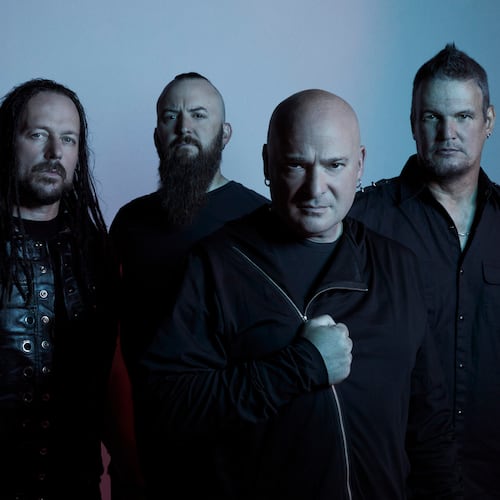For years, a voice inside Brock Daniel’s head nagged him to get it done. Still, he kept putting off the task of making a will.
As a sergeant with the Cobb County Sheriff’s Office, he’s experienced his fair share of danger on the job. But he just couldn’t find the time for estate planning.
Until the coronavirus pandemic.
“I’ve been in some situations that could have gone badly,” said Daniel, a healthy 35-year-old. “Being in this line of work, I assume the worst, and it’s about being prepared for the worst that can happen. Never in a million years would I think I would need to be concerned about a virus like this. This is outside the normal things we can control.”
With COVID-19 cases in Georgia skyrocketing, Daniel decided to act immediately when he saw a Facebook post from a Marietta attorney, Dawn Levine, offering free wills and advance directives for first responders and medical workers in Cobb County.
Before the pandemic, only 32% of adults surveyed said they had a will, according to a 2020 study done by Caring.com. However, in the past few weeks, there's been a surge in the number of people seeking out lawyers who specialize in end-of-life affairs, such as wills and advance directives, local attorneys said.
Levine said her estate planning caseload is double what it was a year ago. Scot Kirkpatrick, an attorney who specializes in estate and tax law at the Atlanta law firm Chamberlain Hrdlicka, said he averages about 150 billable hours a month but is on track for at least 180 hours in April.
The coronavirus has claimed hundreds of lives in Georgia. While the majority of the people who died was older than 60, roughly a quarter was younger.
And the state is likely still weeks away from the number of deaths peaking.
MORE: Everything you need to know about the coronavirus in Georgia
When people die without a will, their property is typically distributed to their closest relatives, beginning with their spouses. But it can get messy if there’s nothing on paper.
Hence, many more people now consider the writing of a will to be an urgent matter.
Levine said her phone is ringing nonstop.
“It is very important, especially in an environment like this, because we don’t know if we are the one who is vulnerable,” she said. “I think we are the point where most of us know someone who has contracted the disease and maybe even someone who has died. So, this makes it very real to all of us.”
Though there are no hard numbers available, there's been an uptick in the number of people going to LegalZoom, an online legal service, to get their affairs in order, said Chas Rampenthal, general counsel. He expects that to continue for several weeks.
“We are going to see people take a hard look at this, people who have been putting this off,” he said. “One particularity of this virus is it is forcing people to stay home, and I kid about this but it’s true — there’s only so much Amazon Prime you can watch.
“People are going to talk to their family about these issues. My thought is the need for estate planning is always there. But the motivation is what changes.”
And, while getting such documents drafted during a global pandemic presents challenges, attorneys are finding new ways to complete the transactions.
As part of the public health emergency, Gov. Brian Kemp has authorized online notarization and witnessing of wills and other documents, using real time audio-visual technology. Attorneys are turning to Zoom or other video conferencing for meetings as they try to follow social distancing recommendations.
To facilitate the signing of documents, some are setting up “drive-through” services in office parking lots. Levine puts a table on the porch of her law office, and one person at a time — clients, witnesses, a notary — steps up with his or her own pen in hand.
MORE: How to write a will in Georgia
Besides creating wills, and possibly trusts for more complex estates, lawyers also recommend people draw up a financial power of attorney and an advance directive. Such directives outline what kind of health care people want and, if they are incapacitated, who should make financial and medical decisions.
Levine said some clients are inquiring specifically about Do Not Resuscitate, or DNR, orders.
Their questions reflect particular concerns that have arisen from the current pandemic, such as those centered around ventilators. Some has asked what would happen if a person with a DNR is diagnosed with COVID-19 and needs the breathing machine? Would the person still get it, given the nationwide shortage? The answer is yes, if one is needed.
A DNR, the lawyer said, is placed in a patient’s medical record to inform the doctor and medical staff that cardiopulmonary resuscitation (CPR) should not be attempted if the patient stops breathing or suffers a cardiac event. A DNR does not state a patient should not be treated. And ventilators can be lifesaving and a necessary medical treatment.
Wills and other end-of-life documents can be completed in as little as a few days, even during the pandemic, according to several local attorneys. The cost generally varies from several hundred dollars to a few thousand dollars, depending on the size and complexity of one’s estate.
Kirkpatrick, the attorney with Chamberlain Hrdlicka, said one of his clients who is racing to get estate planning paperwork in order is a pregnant woman due to go into labor at any moment.
“She kept putting it off until she decided she couldn’t put it off any longer,” said Kirkpatrick. “At this point, she may be reviewing the paperwork on her way to the hospital. Either way, we’ll get it done.”
For Daniel, married and father to two young children, there was never any question all of his assets would go to his wife. But he wanted to put it in writing, along with instructions on what kind of medical care he wants if he’s seriously ill and can’t make his own decisions.
He said the process of doing both a will and an advance directive was painless — a few phone calls, emails and a 40-minute Zoom call to review the documents. And, thanks Levine’s offer to first responders and medical workers, it was also free.
“It gives my wife peace of mind, and it gives me peace of mind,” he said. “It’s good to have it be official.”
About the Author
Keep Reading
The Latest
Featured







